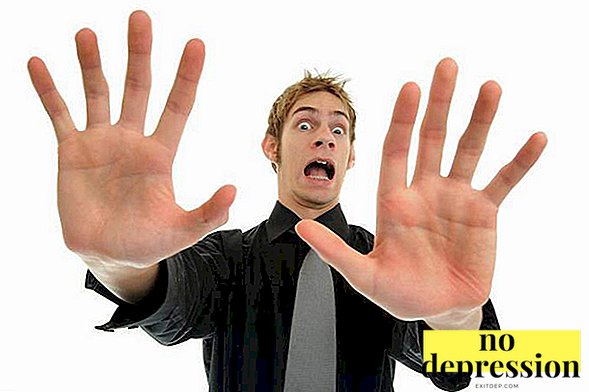Today I will talk about the book that I finished reading the other day. Chip Hih and Dan Heath wrote a book called "thinking traps". (Looking at the names of the authors, I want to call them "Chip and Dale")

By tradition, I will not be limited to a review of the book; I will also add something from myself to the authors. So this review is useful to those who have already read the book, and not just those who are going to read it or simply want to know what it is about.
What is needed for reasonable decisions?
This book is about decision making. She answers the following questions. Why do we see so many marital divorces? Why in many companies, such a big “routine” of employees, as if people regret their decision and quit? Why are there so many rash and expensive purchases because of which a person later repents? What prevents us from making decisions?
The authors analyze the decision-making process based on real situations in business and culture.
In one example, they demonstrate how a solution, which at first seemed attractive to all participants in the process, sank the multi-million dollar company Quaker. In the opposite example, we can see a solution that contradicted the strategy of the well-known company Intel, and also went against the intuition and emotions of its leadership. Nevertheless, this decision allowed the company to achieve excellent results in the market of computing equipment.
Who from readers heard about Quaker? But Intel, I think, practically everyone knows. We owe this state of affairs to two decisions, right and wrong, each of which at one time took the leadership of these companies.
What mistakes in decision making ruined Quaker? What exactly allowed Intel to take its pedestal on the computer market?
The authors derive a list of "decision-making enemies", as well as offer an effective process that will allow you to make the right decisions not only in business and science, but also in your personal life.
The Quaker example, as well as other examples from the book, convincingly demonstrate that there is not enough "flair", "intuition", "unanimous acceptance" for a reasonable decision. These things can even serve as traps of thinking. Therefore, Chip and Dan are trying to formalize the decision-making process. Of course, they do not seek to fully automate human decision making. They want to add a consistent and harmonious method to the art of decision making. Their goal is to free our decisions from the influence of momentary emotions and to help these decisions rely on objective information, real experience.
The whole book is dedicated to this goal. The authors examine example by example, demonstrating the principles on which people from the leaders of huge corporations who faced the crisis, to single women who were looking for a couple, overcame the inertia of their emotions and ideas and found a reasonable solution for their problem.
Additions
It is important to understand that the book does not provide a universal recipe, a ready-made algorithm with which you can make any decision in 5 minutes, and this decision will always be correct. Of course, you will quickly come to some decisions with the help of the advice given in the book. But making decisions is a rather complicated thing. Each individual decision can be said to have its own unique set of factors causing it.
I say this in order to add my thoughts to the ideas of Chip and Dean. There are decisions related to risk and uncertainty, when it is impossible to know in advance whether you have chosen the right path or not.
In short, it is not always in the decision-making process that one can unambiguously understand which decision will be the right one using the methodology, since, whether it is right or not, only its implementation can show. But even this will not demonstrate to you the correctness or incorrectness of your path in each case. After all, accepting one alternative, we refuse another. But we do not know for sure what would bring you what we refused.
The practical conclusion from this is the following. Having read this book, you should not think that now you can make only the right decisions, and until you know that they are correct, you will not begin to implement them. It may not always work. Still, my advice is to accept a share of uncertainty in some situations. Instead of trying with the help of a formalized process for a long and painstaking approach to the right decision, it is sometimes better to start acting, to realize one of the options in life. Otherwise, you can just miss the moment for reflection and analysis.
Now I will give one more small exception, which only confirms the rule that one should think about solutions.
Also, you should not think long about those decisions, the implementation of which will not entail any serious consequences. In such cases, do not be fooled into thinking about possible failure.
For example, you want to take a phone from a girl, but you cannot decide. Thinking here is bad, because you start thinking about failure: “what if I'm not in her taste?” The more you think, the more your indecision increases, and in that case, you just lose time. Do not think! Come and take the phone, because it will not cost you anything! If she does not give her number, you will not lose anything. Therefore, its refusal is not at all a failure, at least significant.
Summing up ...
If we talk about my personal impression of the book, I would say that I liked it and was useful for me.
I noticed that after I read the advice of Chip and Dan, I began to think more deeply about my decisions, trying to find a new approach to the situation.
In addition to practical advice, the book gives reason to think more about their decisions and independently find the right, reasonable approach to their adoption. This will happen even if you cannot fully apply the tips from the book to your situations. The book does not only teach the method. She teaches thinking, forms the right thinking skills in terms of choice.
In addition to the methodology itself, the book contains many interesting facts and tips. For example, I learned that in the USA there exists a company that deals only with topics that come up with a name for major brands (they came up with, for example, the name “Pentium”) and thus has its own profit. It turns out that economic and political experts are constantly mistaken. It is quite possible that your friend, not well-versed in economics, will be more accurate in predicting the change in the exchange rate of the ruble than the eminent expert! Chip and Dan will tell you why job interviews are not effective and will share the secrets of how to make "creative" decisions, for example, in the field of marketing and advertising. It turns out that such decisions are not only art, but also science!
From this book you will learn a lot of interesting and useful. It will be useful to entrepreneurs (especially, in my opinion, beginners who are just starting their business, for them there are many valuable tips), hired employees (even “creative” professions, for example, marketers) in their work, as well as ordinary people in their lives .



